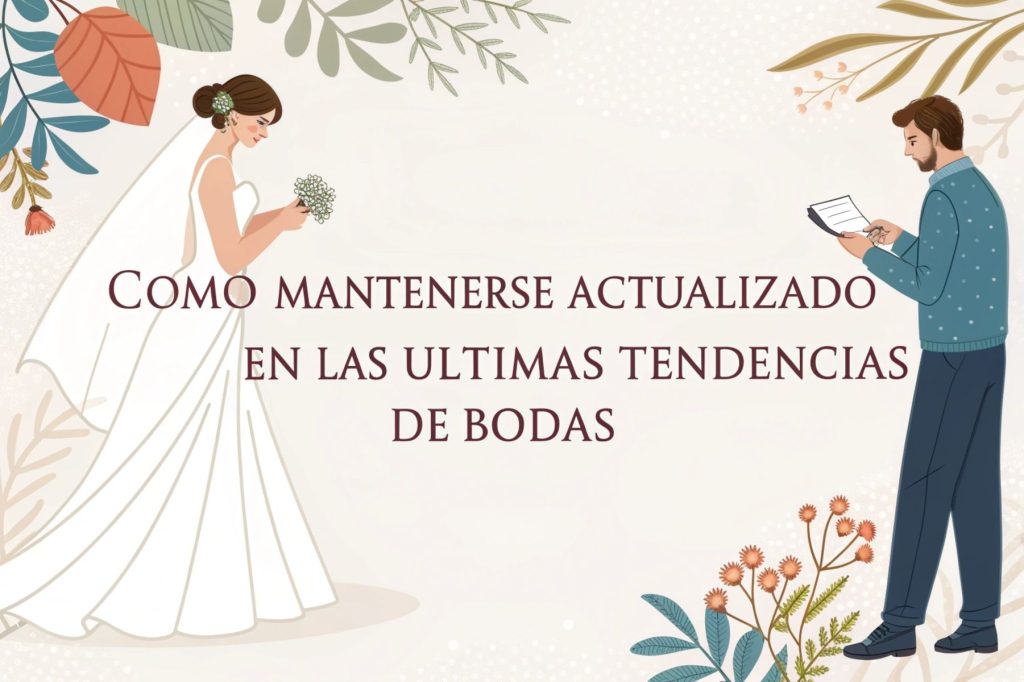Welcome to your ultimate guide to creating the best wedding calendar, an essential resource for anyone looking to stand out in the destination wedding planning industry. Whether you’re an entrepreneur in the events sector or a wedding planner in training, this article will provide the tools you need to manage the logistics of exclusive celebrations. By the end of this read, you’ll not only understand the importance of a well-structured calendar, but also know how to implement the “WED” method (Workplace, Experts, Day) offered by IlincaRadu.com. This methodological approach will help you not only plan but also execute personalized weddings that leave a lasting impression on couples and their guests.
In a world where destination weddings are booming, competition is fierce, and attention to detail is more crucial than ever. An effective wedding calendar is your best ally in ensuring that every aspect of the celebration runs smoothly. Throughout this article, we’ll explore the essential steps to create a calendar that is not only practical but also allows you to offer exceptional service. From selecting vendors to managing the logistics of the big day, every section is designed to help you become a luxury wedding planner capable of managing exclusive events with confidence and professionalism.
Additionally, we’ll introduce the book “Beyond the ‘I Do’”, a complementary guide that will serve as a reference for both beginners and seasoned professionals in the industry. So, if you’re ready to elevate your wedding planning career to the next level, keep reading and discover how IlincaRadu.com can be the solution you’ve been looking for.
The Importance of an Effective Wedding Calendar
An effective wedding calendar is the heart of any successful planning process. It allows you to visualize the entire process and ensure that every element of the event is scheduled optimally. Without a calendar, wedding planners can face a range of issues, such as lack of time to coordinate vendors, last-minute task overload, and the risk of forgetting crucial details.
Creating a calendar isn’t just about listing dates; it’s about establishing a timeline that includes every phase of the planning process, from the first meeting with the couple to the farewell of the guests. This may include:
- Initial meeting dates with the couple.
- Deadlines for booking venues and vendors.
- Trial activities, such as menu and hairstyle tests.
- Payment deadlines and confirmations.
- Day-of logistics, from vendor arrival to guest departure.
A well-designed calendar also allows you to anticipate and resolve potential issues before they become crises. For example, if you know a vendor has a specific lead time, you can schedule your actions accordingly. This not only improves your efficiency but also increases the couple’s confidence in you as their wedding planner.
How to Create a Wedding Calendar Step by Step
1. Initial Meetings and Goal Setting
The first step in creating a wedding calendar is to hold an initial meeting with the couple. During this meeting, it’s crucial to define their goals and expectations. Ask about:
- The style of the wedding (theme, formality, etc.).
- Budget and available resources.
- Desired dates and flexibility.
- Approximate guest list.
With this information, you can begin to draft a preliminary calendar that meets their needs. This stage is vital, as it lays the foundation upon which the rest of the planning will be built.
2. Setting Key Dates
Once you have clarity on the couple’s goals, it’s time to set key dates. These are important milestones that must be met throughout the planning process. Some key dates to consider include:
- Venue booking date.
- Deadlines for selecting vendors (catering, photography, decor, etc.).
- Dates for dress fittings and menu tastings.
- Deadlines for guest confirmations.
Each of these milestones should be scheduled well in advance to avoid last-minute stress. Be sure to communicate these deadlines to the couple so they are aware of every step in the process.
3. Developing the Day-of Timeline
The event day is the culmination of all planning, and a detailed timeline is essential. This schedule should include:
- Arrival times of vendors (florists, catering, etc.).
- Key ceremony moments (bride’s entrance, vow exchange, etc.).
- Reception details (meal times, toasts, dancing).
- Exit logistics for the couple and guests.
A well-structured timeline ensures that everyone involved knows what to do and when, reducing the chance of errors and ensuring the day flows smoothly.
Using the “WED” Method for Wedding Planning
The “WED” method (Workplace, Experts, Day) developed by Ilinca Radu is a powerful tool for wedding planners looking to organize destination weddings. This comprehensive approach helps you manage every aspect of the event efficiently and effectively.
Workplace: Choosing the Ideal Venue
Choosing the venue is one of the most critical aspects of wedding planning. The venue not only sets the atmosphere but also impacts the event’s logistics. When selecting a venue, consider:
- Capacity for the number of guests.
- Accessibility for vendors and guests.
- Available services (catering, decor, etc.).
- Legal requirements and necessary permits.
Moreover, the venue should reflect the couple’s vision. Whether they’re looking for a beach wedding, a castle, or a garden setting, you must ensure the chosen venue meets their expectations. The “WED” method helps systematize this search and make informed decisions.
Experts: Vendor Coordination
Once the venue is secured, it’s time to coordinate the experts who will bring the wedding vision to life. This includes catering, florists, photographers, and more. The key here is building strong relationships with reliable vendors. Consider the following:
- Research and select vendors with destination wedding experience.
- Request references and review past work.
- Establish clear, detailed agreements regarding expectations, deadlines, and payments.
The “WED” method emphasizes working with experts who are not only competent but also share the couple’s vision. Good coordination with vendors ensures everyone is on the same page on the event day.
Day: Execution and Day-of Logistics
The wedding day is when all prior work comes to life. Here, the “WED” method focuses on event execution and logistics. You must ensure everything flows smoothly and that every vendor is in place. To achieve this, consider the following:
- Assign clear roles to your team and vendors.
- Conduct a walkthrough of the venue with vendors before the event.
- Have a contingency plan for unexpected events (weather, delays, etc.).
The key is communication. Keep an open line with all parties and ensure any issues are resolved quickly. The event’s success depends largely on your ability to manage logistics in real time.
Beyond Planning: Additional Resources
In addition to creating an effective calendar and using the “WED” method, there are other resources that can support your journey as a wedding planner. One such resource is the book “Beyond the ‘I Do’”, which offers valuable insights and practical advice for those looking to dive deeper into the wedding industry. This book focuses on:
- Current trends in luxury weddings.
- How to personalize the experience for each couple.
- Marketing and branding tips for wedding planners.
- Success stories and lessons learned from industry experts.
Having a guide like “Beyond the ‘I Do’” can be a great complement to your training and give you a competitive edge in the destination wedding market.
Wedding Planner: Guide to Creating the Ultimate Wedding Calendar
In conclusion, creating an effective wedding calendar is essential for any wedding planner looking to excel in organizing destination weddings. From initial planning to event execution, every step must be carefully thought out and structured. By implementing the “WED” method and using resources like the book “Beyond the ‘I Do’”, you’ll be better prepared to face industry challenges and offer memorable experiences to your clients.
If you want to dive deeper into the topic and receive direct support in your training as a wedding planner, we invite you to complete our form at the end of this article. At IlincaRadu.com, we are committed to helping you achieve your goals and become an expert in luxury wedding planning.
Frequently Asked Questions
What is a wedding planner?
A wedding planner is a professional who helps couples plan and coordinate all aspects of their wedding, from vendor selection to day-of logistics.
Why is a wedding calendar important?
A wedding calendar is crucial because it allows for organized planning, helps meet deadlines, and ensures all details are taken care of for a successful event.
What is the “WED” method?
The “WED” method is a structured approach that includes three stages: Workplace (venue selection), Experts (vendor coordination), and Day (event execution).
Where can I learn more about Ilinca Radu’s course?
You can learn more about the specialized course for wedding planners by visiting IlincaRadu.com and exploring our resources and training programs.


